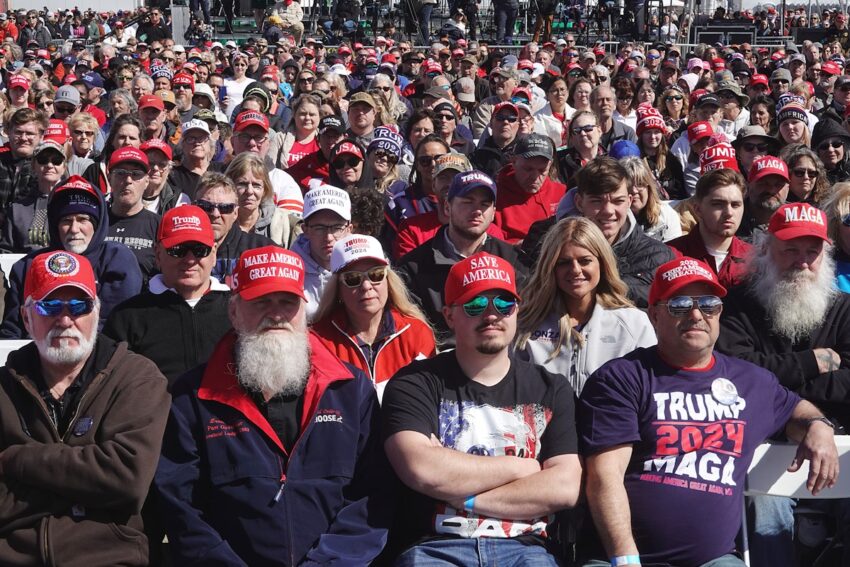On those issues and more, Trump has, as a recent Times headline put it, promised the moon with “no word on the rocket.” On many issues, though, not only is there no rocket, but there are instead blueprints for a deep-sea submersible: Trump’s core policy proposals are poised to do the opposite of what he says, exacerbating the economic discontent he tapped into. Between his proposed tariffs, deportations, and tax cuts, Time reports that if Trump “enacts many of the policies he proposed on the campaign trail, voters may see prices continue to rise.”
Consider these archetypal dispatches from the 2024 campaign trail. “A lot of people are happy to vote for Trump because they simply do not believe he will do many of the things he says he will,” an October New York Times “campaign notebook” entry observed. The following week, The Washington Post noted of prospective Trump voters: “Some read between Trump’s lines about how he would govern, while others disregard parts of his past or present platform.”
But the chimerical allure that helped propel Trump to the White House has an expiration date. He sold myriad, and often conflicting, fantasies to voters. In three weeks’ time, he’ll face reality. And many Trump voters will undoubtedly start to realize that he is not at all the person they thought they were voting for.
In other words, for many, Trump was whoever they wanted him to be—a choose-your-own-candidate. Voters projected their wishes onto his candidacy, regardless of his stated policy program. They remembered positive aspects of his presidency and either memory-holed the negative parts (his deadly mishandling of the pandemic, say, or his nomination of Supreme Court justices who eliminated abortion rights) or simply didn’t blame him for them. But Trump’s rhetorical slipperiness made this possible. His relentless lying, flip-flopping, and vagueness about his plans made it difficult to pin him down, thereby attracting voters from both sides of certain issues.
Already, there are two major contradictions emerging in the nascent Trump administration, Vox’s Zack Beauchamp argued in November. “The first centers on economic policy—or, more fundamentally, the role of government itself,” he wrote, noting that some Trump picks are proponents of unfettered capitalism while others are economic nationalists who want to “transform American society, including by attacking the practices of large corporations.” The second contradiction, meanwhile, “centers on foreign policy—or, more fundamentally, the purpose of America in the world.” The advocates of hard power versus the isolationists, essentially.
If Trump brings his ghastly immigration policies to bear (and follows through on his more unpopular stances, such as prosecuting his political foes and pardoning January 6ers), it’s not unreasonable to expect that his crowing about his “powerful mandate” will be exposed as arrant hyperbole.
Then there was the phenomenon Paul Krugman, the retiring Times columnist, dubbed “Trump-stalgia,” which could just as well have been called “Trump-nesia.” Most Americans are undoubtedly better off than they were four years ago, he wrote in May. “But for reasons that still remain unclear, many seem disinclined to believe it.” This sentiment held true through the election. As TNR’s Greg Sargent reported on November 9, citing internal Democratic polling, “It proved disturbingly difficult to persuade undecided voters that Trump had been a bad president.”

